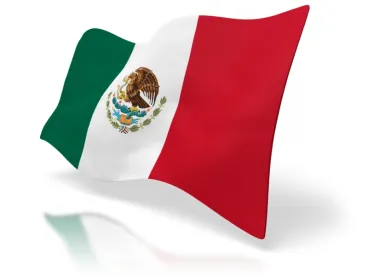On March 31, the Mexican government issued, as part of a series of actions aimed at mitigating and controlling the effects of COVID-19, extraordinary measures to meet its immediate and emergency needs.
IMMEDIATE SUSPENSION OF ALL NONESSENTIAL ACTIVITIES
From now through April 30, 2020, Mexico has suspended all nonessential activities in order to reduce the burden of COVID-19.
Only activities directly correlated to the following shall be considered essential and may continue to operate:
-
Health, medical, paramedical, pharmacy, hazardous substance, cleaning and sanitation, including manufacturing and distribution thereof
-
Public security, safety and defense, including judicial and legislative activities related thereto
-
Fundamental sectors of the economy, including:
-
Fiscal
-
Utilities, including electricity, water and gas
-
Food and beverages (other than alcoholic beverages), including retail and distribution
-
Agriculture, fisheries and livestock
-
Industrial chemicals and cleaning
-
Storage
-
Courier services
-
Private security
-
Child care, nursing homes and shelters
-
Telecommunications and media
-
Emergency services
-
Funeral services
-
Transportation of individuals and cargo
-
Logistics, including airports, ports and railways
-
Activities whose suspension may have irreversible effects as a result
-
-
Governmental activities
-
Conservation, maintenance and repair of the critical infrastructure
Locations that perform essential activities must observe certain practices, including:
-
No meetings of more than 50 people
-
Individuals should wash their hands frequently
-
Individuals should take certain precautions while coughing and sneezing
-
No contact when greeting, including handshakes
To the extent an individual does not have to perform any essential activities, individuals are expected to take shelter until April 30, 2020.
Regardless of whether their activities are essential, sheltering is required for individuals who:
-
Are 60 years old or over
-
Are or were recently pregnant
-
Have heart, lung, kidney or liver diseases, diabetes, or are otherwise immunocompromised
Once the take-shelter period has been completed, the Mexican government will issue guidelines for orderly, phased and regionalized return of activities.
Just prior to issuing this series of actions, on March 27 Mexico’s president, Andres Manuel Lopez Obrador, issued a decree declaring that certain extraordinary measures be taken in certain regions of Mexico in reaction to COVID-19 and on March 30, the Mexican government declared the pandemic a health emergency via force majeure. Such measures include:
-
The use of medical and other resources from the public and private sectors located in the affected and neighboring regions
-
Foreign and domestic acquisitions of goods and services, including medical equipment, tests and hygiene products, as well as other goods necessary to deal with to the contingency, without the need for a public bidding procedure or other administrative restriction
-
Taking necessary measures to avoid price gouging and hoarding of such goods
-
Such others as may be deemed necessary by the Mexican Ministry of Health






 />i
/>i

